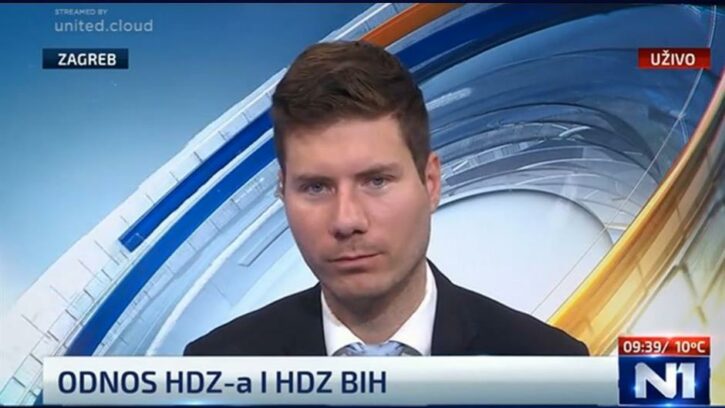
A Croatian Parliament lawmaker told N1 on Saturday that he was glad Bosniaks in the neighbouring country used their numerical dominance to elect a Croat member of Bosnia’s Presidency other than the leader of the Croat Democratic Union (HDZ), whom Croats in Bosnia overwhelmingly voted for.
“The HDZ is advocating a policy that is toxic for Bosnia and Herzegovina and voting them out represents a positive political moment for Bosnia because it provides hope that such a rhetoric is removed from the public space,” Ivan Pernar, a representative of a party called ‘Human Shield,’ told N1.
The HDZ, currently the ruling party in Croatia, also has a branch in Bosnia that has been advocating the creation of a separate entity for Croats in in the country and has been accused of inciting nationalism throughout most of Bosnia’s post-war period.
Many of the party’s opponents believe the party often dominates at elections because of elections fraud.
Pernar said the Bosnian HDZ is being run centrally from Zagreb, Croatia’s capital.
“They were defeated, it’s the same mastermind, the same system,” he said.
He then told an anecdote he said he heard following the election in his own country.
“A man enters the polling station with two ID cards, his own and the one that belonged to his dead father. He wants to vote for both. They tell him he can’t vote for his father and he replies: ‘How come I can't? I could do so until now’,” he said.
Whenever the HDZ was ‘cheated,’ as the party currently claims, “it means they go what they deserved,” Pernar said.
Using numerical dominance to elect the other ethnic group’s representative is not a matter of ethnic intolerance, Pernar said.
“I thought that Croats could not elect the HDZ again but when I saw that Covic got 90 per cent in Mostar, I realized that I don’t have a problem with the HDZ, I have a problem with the majority of Croat people,” he said, adding that this is why using this numerical dominance is not a matter of national intolerance, but rather represents “the rejection of the HDZ policy.”



